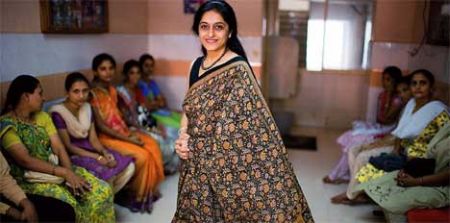Controversial market
by Basia
In 2002 India legalized the practice of surrogate motherhood. Since then, large numbers of Indian women have gotten pregnant through hiring their wombs to deliver children to infertile couples, single women and homosexual couples from the Western countries.

For surrogate mothers hiring out their own womb is a way to get out of poverty. Many Indian women opt for it to earn money for education and medical care for their children.
In the documentary for BBC4, 28 year old Vasanti recounts that a pregnant surrogate receives up to $8,000. The money will allow her to build a new house and send her children to a good English teaching school. Vasanti and her husband admitted that, the money received for the surrogacy will also increase their social status. In the future their daughter will have a better chance to get married, and eventually they will have money for a dowry.
Expensive parenthood
The whole “game” is not about these few thousand dollars at stake. Journalist from Columbia University, Divya Gupta states that surrogate motherhood is nothing but huge business for brokers and clinics. In 2013 its value had been estimated to more than $2.5 billion. Prospective parents have to pay from $10 to $18 thousands. In comparison, in the US average cost of having a surrogate baby it is $30 thousands. Indian’s surrogacy clinics are definitely cheaper but women are treated as factory workers – they must undergo fertilization, they are then sent back to their homes and must return after nine months, give a birth and get the money.
 In Dr.Patel’s clinic surrogates receive more than they could get in other clinics. Doctor Patel offers them $8 thousands for the birth of a child. In the case of an abortion, surrogates only get $600. Dr. Nayana gets up to $30 thousands in advance.
In Dr.Patel’s clinic surrogates receive more than they could get in other clinics. Doctor Patel offers them $8 thousands for the birth of a child. In the case of an abortion, surrogates only get $600. Dr. Nayana gets up to $30 thousands in advance.
Feminist in action
The founder of the first clinic in Gujarat was gynecologist Dr. Nayana Patel. This hospital is different from others. Apparently the personnel take care of the women from the moment they decide to be surrogate until the due date. Some of surrogate mothers are insured on the special request. Dr Nayana says that in her hospital women are being psychologically supported and can count on advice at any time.

The first hospital founded by Dr. Patel is the place with homely atmosphere where surrogates are allocated into common rooms with 10 other mothers. They are provided with properly balanced meals and doses of vitamins. Once a week, on Sunday’s, they are allowed to meet with their family. In the Western press there have been numerous articles criticizing the conditions in which surrogate mothers give birth to children for people from the West. In order to soothe the conscience of future parents, the surrogacy business began to increase hospitals standards.
More customers , more happiness
“Bussiness mother” delivered over 600 babies, the business is booming, and the construction of a new, luxurious clinic worth several million dollars is ongoing. Over 100,000 sq. m hospital, large enough to house 100 surrogates and 40 clients; parents to be, who will be offered apartments when they come to visit. Demand for having children is high so the conditions of hospitality need to be high too. However the trade in babies is still controversial.

Dr. Patel in her statements for the left-wing Western press describes herself as a feminist and claims feminist ideology gave her the inspiration to open up the clinic. “People have two basic instincts, to survive and to procreate,” said Dr Patel. “I am helping with both: the surrogates survive with the money I pay them, and the childless couples procreate.”
However, when the Indian gynaecologist talks about her surrogate mothers, she no longer uses the ideological platitudes. She is painfully honest and concludes that she pays the surrogates for the performance of physical work to which they agree. Those women willing to be a surrogate are well aware that, if there is no pain, there is no gain.
Dr. Patel, philanthropic feminist or well orientated businesswoman?
What is your opinion about trade in babies ?

